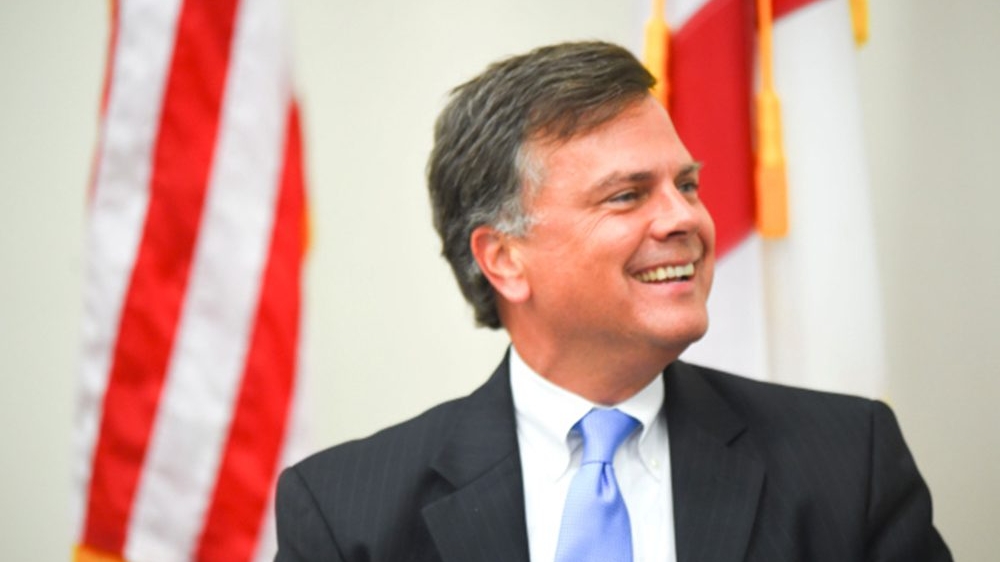Republicans have dominated state government in Alabama over the last decade, eclipsing the Democrats in 2010 by promising to end legal and illegal corruption and replacing cronyism with sound policy. While Republicans made long strides in the earliest days, it now seems the errors of the one-party system once controlled by Democrats have come full circle under Republicans.
Look no further than SB101 — a bill by Education Trust Fund Committee chair Sen. Arthur Orr, R-Decatur — to see bad politics masquerading as good policy with an air of legal corruption. Legal corruption is legislation or acts with bad intent that don’t break any laws. In other words, self-serving, but no one is going to jail.
Orr’s legislation with SB101 is more like a private fund to fuel his personal political empire within the Statehouse. Orr is the single most powerful senator in Alabama because he has been allowed to run these types of schemes unchecked by leadership.
SB101 amended the Rolling Reserve Act to create a new savings account called the Educational Opportunities Reserve Fund, into which $500 million in cash will be deposited if it becomes law. The funds for the new savings account were appropriated in Orr’s $2.8 billion supplemental ETF legislation.
A significant change to the budget with SB101 is how education is funded. Under the new law, no matter what’s going on in the economy, the state will never be able to appropriate more than 5.75 percent growth year over year while growing an enormous pool of money on the backend. This appears to purposely starve education while accumulating cash for hazy proposes.
For Fiscal Year 2024, the Legislature allocated $8.8 billion for the education budget, leaving around $2 billion unappropriated and sitting in reserve.
How much money should be withheld from education as a savings account, and who should determine how and when to tap those funds?
In reality, SB101 is ostensibly creating a fourth saving account. Currently, the state has a rainy day account, which holds in the neighborhood of $600 million. Then there is the Budget Stabilization Fund, created with a rolling reserve of almost $600 million in cash. There is also an Advancement in Technology fund with around $750 million on hand. (Technically, A&T is not a savings account, but it serves the same purpose.)
Taken together, the state has a 29 percent cash reserve against an $8.8 billion budget. To stretch a point — not absurdly — if the $2 billion of estimated revenue unappropriated in the current ETF were added to the total, the state would have 49 percent in cash reserve.
This type of cash reserve held by the state would make Wall Street envious of Alabama’s position in the market. But it is important to remember that governments are not in the business of making or hoarding money but to dispense it wisely to benefit citizen-taxpayers.
For example, the state would have to lose $2 billion in receipts before touching the 29 percent reserve. Imagine that scenario for a minute, and think about what is happening with SB101, and it all seems a little crazy.
The question is, then, why is this new account needed? The argument coming from Orr and SB101’s supporters is that this new reserve account can be accessed without the governor declaring proration.
Under the rolling reserve stabilization fund account, the governor has to certify proration to tap those funds.
Interestingly, Orr wants a new fund when the rolling reserve is still not fully funded, which raises another question.
In Orr’s telling, the problem is that as ETF chair, the Legislature can’t access the rolling reserve in a time of need unless the governor declares proration. That’s an easy fix: simply amend the rolling reserve to eliminate the proration provision.
But this is not about the proration or the underfunded rolling reserve. This is about creating a power pool of money at Orr’s disposal. Not quite a slush fund, but close.
Inside SB101 is some funny, fuzzy language that should give any fiscal conservative pause. One such provision is “transitional support for initiatives that provide access to enhanced educational opportunities.”
What are transitional education enhancement opportunities? No one seems to know, but someone should care.
What is also concerning about the “enhanced educational opportunities” is that it expressly prohibits this fund from being used for capital outlay. Why?
What seems to be apparent is a desire on Orr’s part to limit what can be spent on education on the front end and then dump a bunch of cash on the back end that can be used as a discretionary fund.
The Legislature still has some fiscal conservatives who might find SB101 an alarming return to the bad old days of crony politics passing for policy. Hopefully, some will retain the ability to recognize and stand up for a truly conservative fiscal agenda that is not about politics.
SB101 is a full circle back to the inherently lousy policies that, over time, permeate a one-party system of government that, in turn, produces unscrupulous and unprincipled laws. In this case, it’s all about controlling the money and that is how scheming politicians like Orr become so powerful.




















































